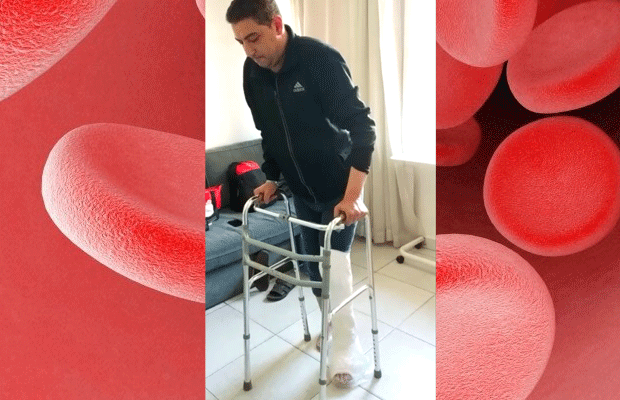Hazem El Tahan is a man with severe hemophilia A in Egypt. He suffered several bleeds over a two-year period in his left knee which led to septic arthritis, permanent damage, and severely limited mobility. Doctors at Shabrawishi Hospital recommended that he undergo knee replacement surgery. Performing this difficult procedure on El Tahan was only possible because of donated factor provided by the WFH Humanitarian Aid Program. He later developed the same issue in his other knee, and the procedure was repeated—again using donated WFH Humanitarian Aid Program factor. El Tahan has since made a full recovery, has full mobility in both legs, and is able to once again work and support his family. Egypt received 13.4 million IUs of factor in 2020.
About the WFH Humanitarian Aid Program
The WFH Humanitarian Aid Program improves the lack of access to care and treatment by providing much-needed support for people with inherited bleeding disorders in developing countries. By providing patients with a more predictable and sustainable flow of humanitarian aid donations, the WFH Humanitarian Aid Program makes it possible for patients to receive consistent and reliable access to treatment and care. None of this would be possible without the generous support of Sanofi Genzyme and Sobi, our Founding Visionary Contributors; Bayer and Roche, our Visionary Contributors; Grifols, our Leadership Contributor; and our Contributors, CSL Behring and Takeda. To learn more about the WFH Humanitarian Aid Program, visit www.treatmentforall.org.













